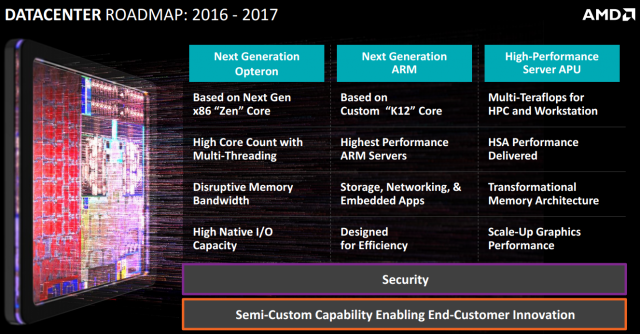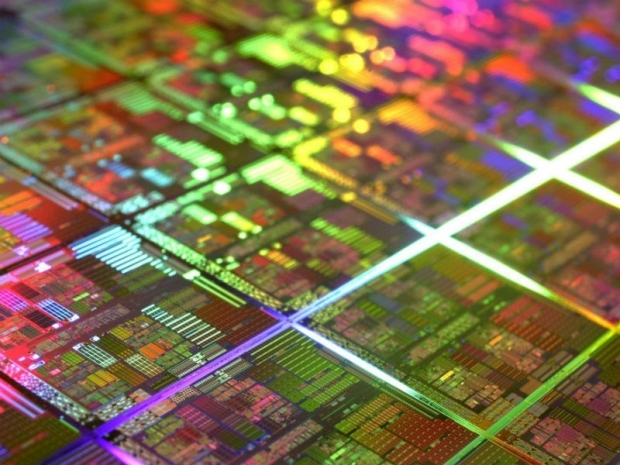Nick had a part where it mentions GlobalFoundries as part of the puzzle, but we have a bit more to add to this complex equation.
It turns out that it was number of factors, not only the 20nm manufacturing issues. In its latest roadmap update, AMD promised Zen X86 CPUs in 2016 and pushed ARM to 2017, since interest in X86 / ARM socket compatible products was lacking.
To refresh your memory, in May 2014 AMD introduced “Project SkyBridge”, a design framework, available starting in 2015, that will feature a new family of 20 nanometer APUs and SoCs that are expected to be the world’s first pin-compatible ARM and x86 processors. The ARM version would be based on A57 cores supporting AMD's Heterogeneous System Architecture (HSA), while the X86 variant was supposed to be based on Puma+ cores. Needless to say, Puma+ is not AMD's highest performance core.
AMD K12 was announced at the same time with promises that Chief CPU Architect Jim Keller's team can deliver this product in 2016.
Our well informed sources close to the matter are saying that AMD's customers and leadership have realized that the future of the company lays in the introduction of Zen cores first. This is why Zen, the company's first 14 nm FinFET design, is coming in 2016. Jim Keller's team is strongly focusing on this one, as competitive Zen cores mean that AMD can reenter the server segment – a highly profitable market - with some strong products.
ARM based K12 will definitely get some traction, but it is not as important as Zen cores for desktop or servers will be. AMD after all is planning a high performance server APU, the company's first.

Back in November 2014 we wrote that 20nm is broken for GPUs, but it turns out that 20nm process was troublesome for all high performance chips, including CPUs and APUs. It could work, but from what we hear it was the yield issue.




